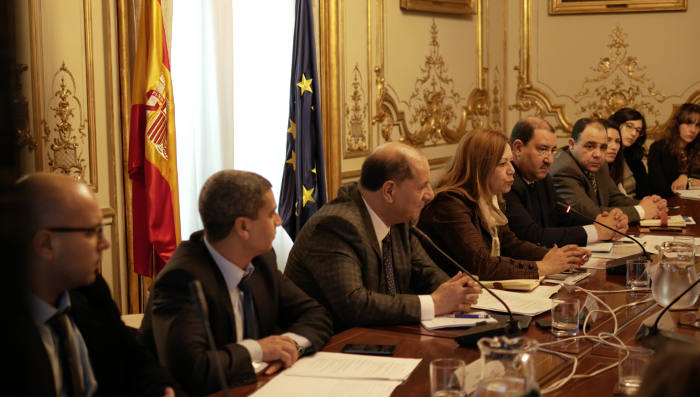-
|
07 April 2017
|Posteado en : Reportage
Since 2015, FIIAPP has managed the project to support the Tunisian Ministry of Justice in the democratic transition process.
In December 2010, in the centre of the Tunisian capital, a pivotal moment in the country’s recent history occurred. Near the city’s main square, Mohamed Bouazizi, a 26-year old street vendor of fruits and vegetables, was stopped by three municipal police officers and asked to pay a bribe whilst he was selling his goods. Mohamed refused and the police confiscated his produce and cart. That same afternoon he went to the governor’s office to demand that his property be returned but received no reply. So he decided to buy a can of gasoline and some matches and then lit himself on fire inside the municipal government headquarters.
Mohamed’s flames ignited the tensions of the Tunisian people, and the square filled with shouts of hope. Thousands of citizens took to the streets to demand the rights they had been denied under the regime of Ben Ali. After several weeks of citizen demonstrations, the party was dissolved.
Since then, Tunisia has been undergoing a democratic transition. In 2014 the constitution was ratified and the first free and democratic elections were held, in which Habib Essid of the Nida Tunes party was named prime minister.
European project to support the ministry of justice
The European Union applauded the advances of the Tunisian democratic transition and made a commitment to provide support throughout the process. One example of this commitment is the project to support the Tunisian Ministry of Justice, which began in 2015, is being funded through the European Neighbourhood Instrument and managed by the International and Ibero-American Foundation for Administration and Public Policies (FIIAPP).

The aim of this project is to support the Tunisian judicial system in the democratic transition process and to define the structure of the Ministry of Justice and the General Council of the Judiciary. The resident project manager in Tunisia, Ángel Llorente, describes the situation at the start of the project, “passing from an autocratic regime to a democratic system with liberties, it was necessary to change the most important laws because, in the Ministry of Justice, a series of competences previously converged that should be exercised by an independent judiciary empowered with autonomy and its own budget”.
Currently the project is at its mid-point. A first phase has already been completed involving a study to learn the prior situation and thereby identify the needs on which to base the design of future implementation of public policies. An advocate in the superior court of justice of Murcia and the project leader, Javier Parra, explained that one of the tangible achievements to date is the preparation of a five-year plan for the insertion of information technologies.
But the results of the project are not just relevant during the two and half years of its execution; it is hoped that these steps taken will be the motor of a much deeper change in the structure of Tunisian judicial bodies. One example of this is the five-year programme of objectives to be achieved in the next five years. The advisor to the Tunisian Ministry of Justice and head of the mission, Najet Ben Salah, explains that “we are committed to getting results; we have objectives that are already included in an overall action plan, and we hope that these results can be achieved in the next five years”.






